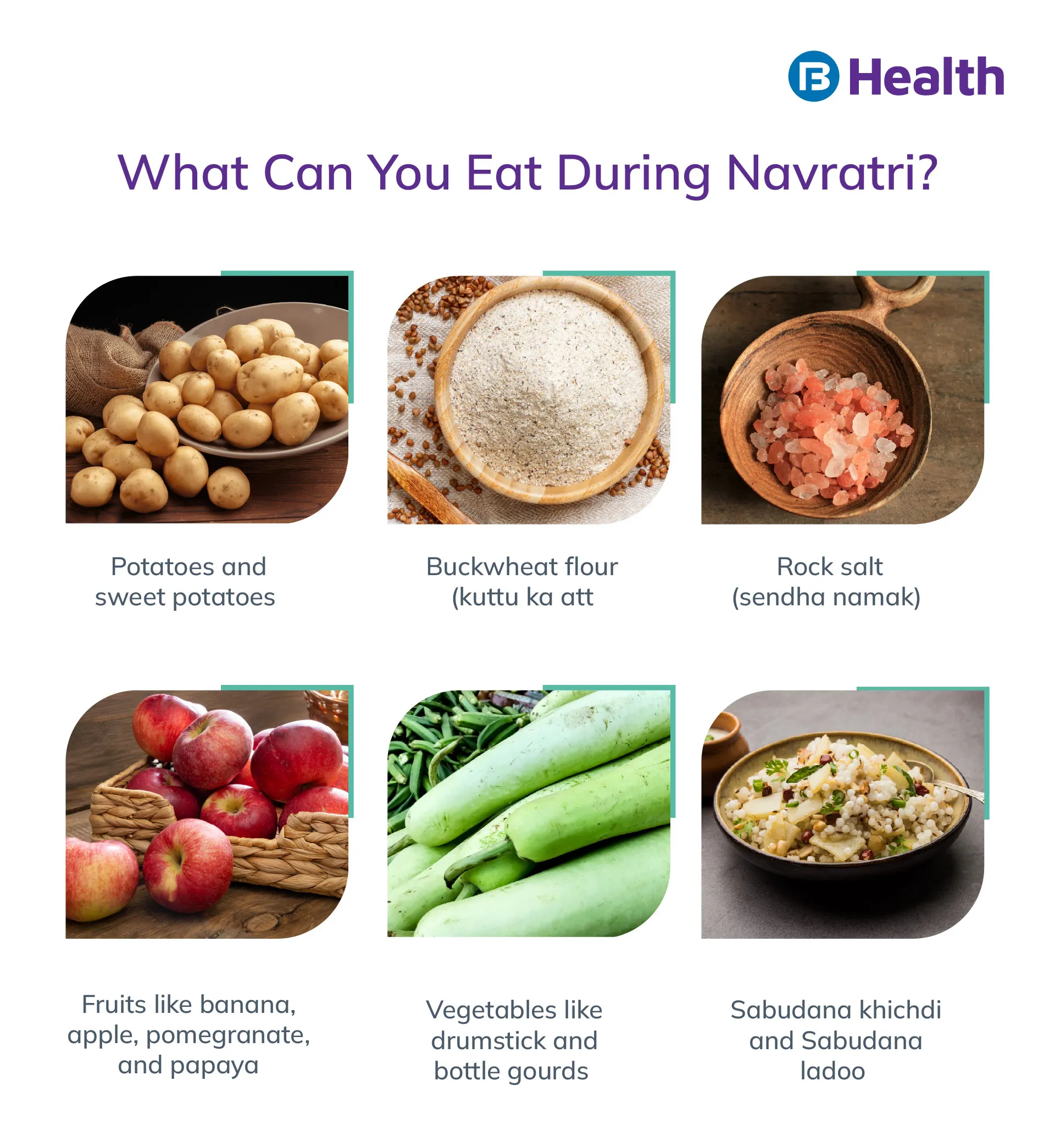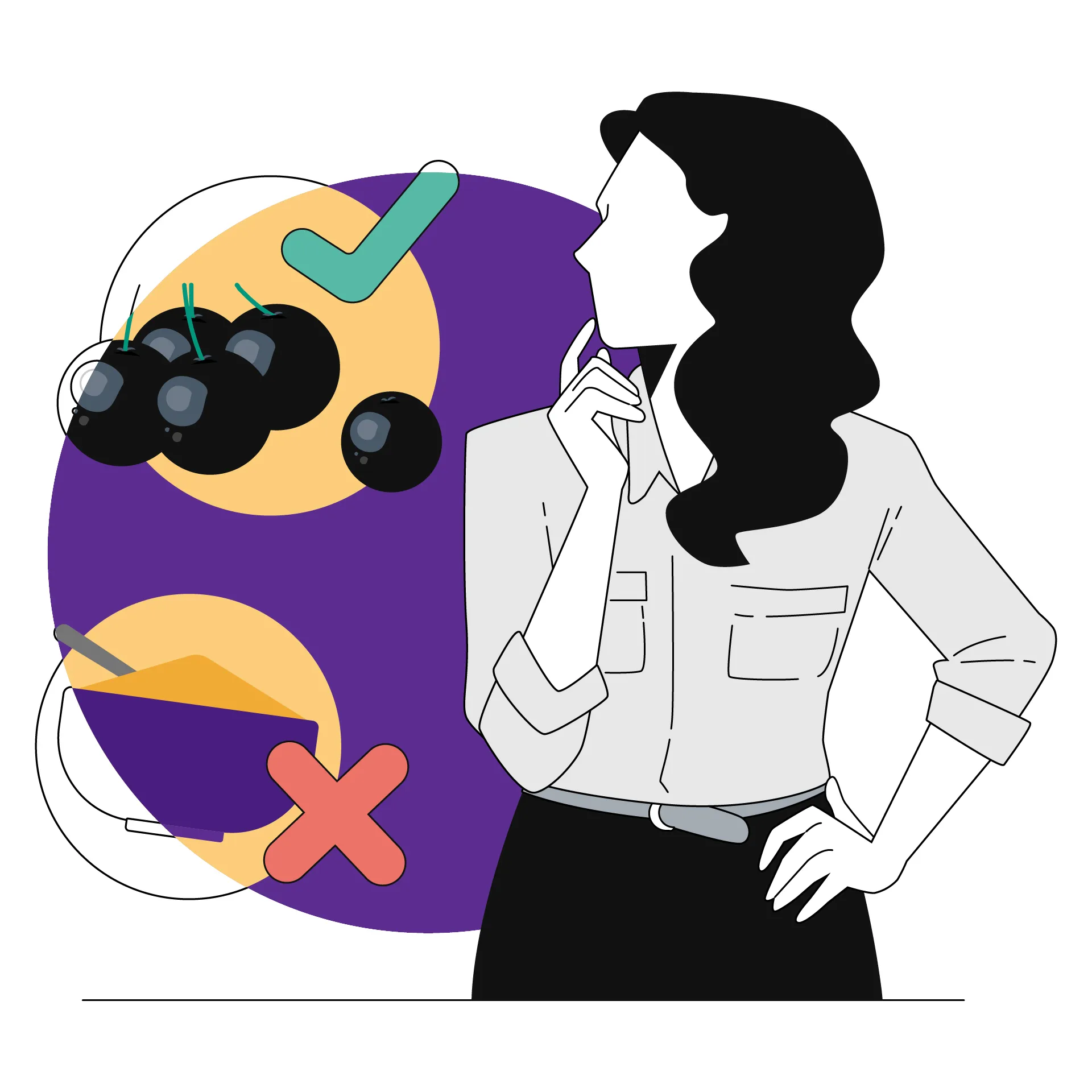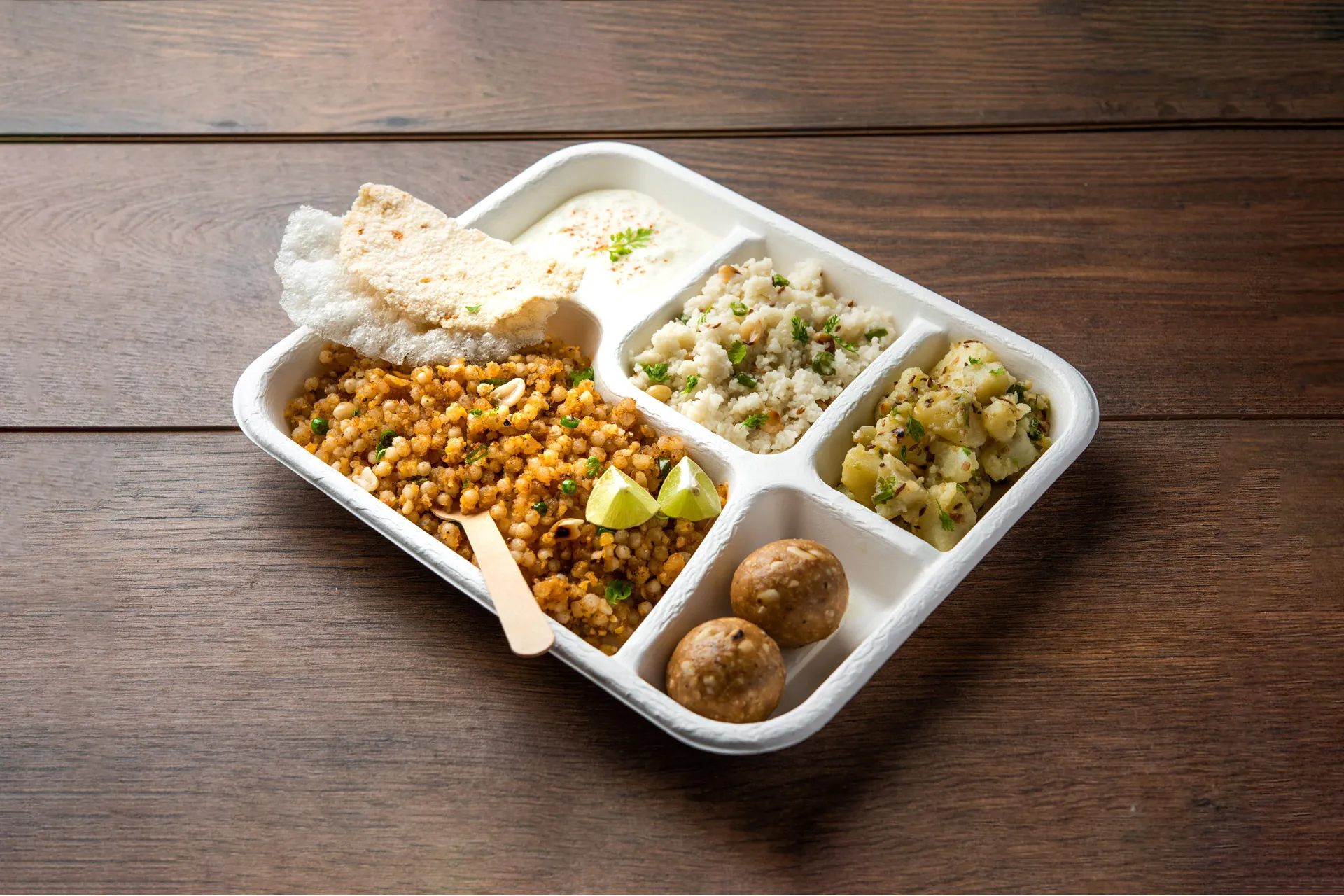Dietitian/Nutritionist | 5 min read
Navratri Fasting Rules: What Foods to Eat and Avoid
Medically reviewed by
Table of Content
Synopsis
Navratri is a nine-day festival celebrating the goddess Durga as the ultimate power. The festival falls on a specific day every year. The first day of Navratri marks the arrival of Navagraha, and their blessings are supposed to be received during this auspicious day.
Key Takeaways
- While following Navratri Fasting Rules, remember to stay hydrated
- Eat small regular meals packed with proteins
- Avoid alcohol, caffeine, and nicotine
Navratri fasting is one of the most important aspects of the Navratri festival. This fast lasts for nine days, and there are many rules associated with it. You must stick to certain food items and avoid others during this time.
This article will help you understand all about Navratri fasting rules and what not to eat so that you can prepare yourself well for Navratri fasts.
What are the Navratri Fasting Rules?
While fasting is mandatory during Navratri, it is not a religious duty everyone should follow. Some people do not like to fast because they feel hungry or desire sugary food items. They also think that their bodies need proper nourishment during this period as energy is required for celebrating the festival and following the various rituals.
During this time, people abstain from eating anything cooked or processed. So meat, eggs, or fish are strictly avoided. They also stay away from alcoholic drinks while they observe fasts during this time. If you are looking forward to this festival, then you should know all the rules to follow a Navratri fast.
What Food to Eat and What Not to Eat?
Navratri is a nine-day fasting period in which people abstain from eating or drinking but consume water with some specific food. However, it is not an easy task to keep track of all of the rules and exceptions on foods you can eat.
Some days require complete fasting, while others allow certain foods like milk products or fruits but not vegetables (like tomatoes). You should also remember that some foods may be consumed during morning hours only while others can be consumed throughout all nine days, including breakfast time.
Additional Read: Ways to Stick to Your Diwali Diet Plan
What to Eat During Navratri Fast?
You can eat the following items during Navratri:
- Potatoes and sweet potatoes.
- Buckwheat flour (Kuttu ka atta).
- Rock salt (sendha namak)
- Fruits like banana, apple, pomegranate, and papaya
- Vegetables like drumstick and bottle gourds
- Sabudana khichdi and Sabudana ladoo
Let's discuss more about their health benefits:
1. Potatoes and Sweet Potatoes
Potatoes, sweet potatoes, and Kanda bhaji are all rich in carbohydrates, vitamins, and minerals. They also contain fiber which helps you feel fuller for longer.
2. Buckwheat Flour (Kuttu ka Atta) and Amaranth Flour (Rajgira ka Atta)
Buckwheat flour is made from wheat seeds that have been ground into powder form and are used in many Indian dishes because it adds texture without adding calories or fat.
Amaranth flour is a member of the same family as quinoa but contains more protein than most other grains. Amaranth flour is used to make rotis, puris, and upvas. A combination of these two flours can be used for making pieces of bread or cakes.
Amaranth has more nutrients compared with other grains like wheat or rice, which keeps your healthy body during the fasting period as well as after completing the fast if you don't want any complications later.
3. Rock salt (Sendha Namak)
Rock salt (Sendha Namak) is a good source of sodium and potassium. It contains calcium, zinc, and iron which help in digestion [1]. Rock salt also helps reduce body weight by making you feel full for extended periods.
Rock salt should be consumed only after sunset on the first day of Navratri fasts as it affects one's mood and other health benefits like lowering blood pressure levels and improving skin texture.

4. Fruits like banana, apple, papaya, and pomegranate
Bananas and apples are good for digestion. Pomegranates are good sources of vitamin C. These are great sources of potassium and fiber. They are also good for managing diabetes because they contain soluble fiber, which slows down digestion and helps lower blood sugar levels. Raw papaya is also a good source of enzymes that helps in proper digestion.
5. Vegetables like drumsticks and bottle gourd
Vegetables like drumsticks and bottle gourds are good for digestion. These vegetables can be eaten during the fast. Drumsticks help reduce cholesterol levels by 80 percent and lowers blood pressure by 15 percent when you eat them every day for three months.
6. Sabudana khichdi and Sabudana ladoo
Sabudana khichdi is a popular dish that is eaten during the Navratri fast. It's made with sago and dried lentils, which makes it a very easy-to-digest food. The main ingredients of this dish include rice, urad dal, moong dal, Bengal gram, and chana dal.
Sabudana ladoo is another popular dish that you can eat during the Navratri fast if you want something sweet but don't have an aversion to eating too much sugar or refined flour products.
What Should Eat During Navratri Fast?
- Curd, buttermilk, and milk products - are all good for your body
- Sugar-free sweets - These contain refined carbohydrates, making you fat
How to Keep a Navratri Fast?
Though the Navratri fasting rules vary from place to place. Here are a few basic Navratri upvas fasting rules you need to know: -
- The vessels used for cooking during Navratri are different. The vessels used during Navratri include earthen pots, clay pots, earthen furnaces, and kerosene stoves.
- In some places, women must wear sarees or saris during this period.
- You can drink water or tea without sugar or milk during this period.
- You can have fruits like bananas, apples, oranges, etc.
We hope this article helped you gain more insight into the Navratri fasting rules, the benefits of fasting, and what to eat and what not to eat during Navratri. However, if you have any medical conditions, it is important to speak with a general physician before fasting.
You can now do this from the comfort of your home by booking an online doctor consultation offered by Bajaj Finserv Health. With Bajaj Finserv Health, you can also choose the best physicians in your area, make appointments, set up reminders for taking your medications or getting shots, and save all your medical information in one location.
References
- https://food.ndtv.com/food-drinks/15-incredible-rock-salt-benefits-for-skin-hair-and-overall-health-1632127
Disclaimer
Please note that this article is solely meant for informational purposes and Bajaj Finserv Health Limited (“BFHL”) does not shoulder any responsibility of the views/advice/information expressed/given by the writer/reviewer/originator. This article should not be considered as a substitute for any medical advice, diagnosis or treatment. Always consult with your trusted physician/qualified healthcare professional to evaluate your medical condition. The above article has been reviewed by a qualified doctor and BFHL is not responsible for any damages for any information or services provided by any third party.





